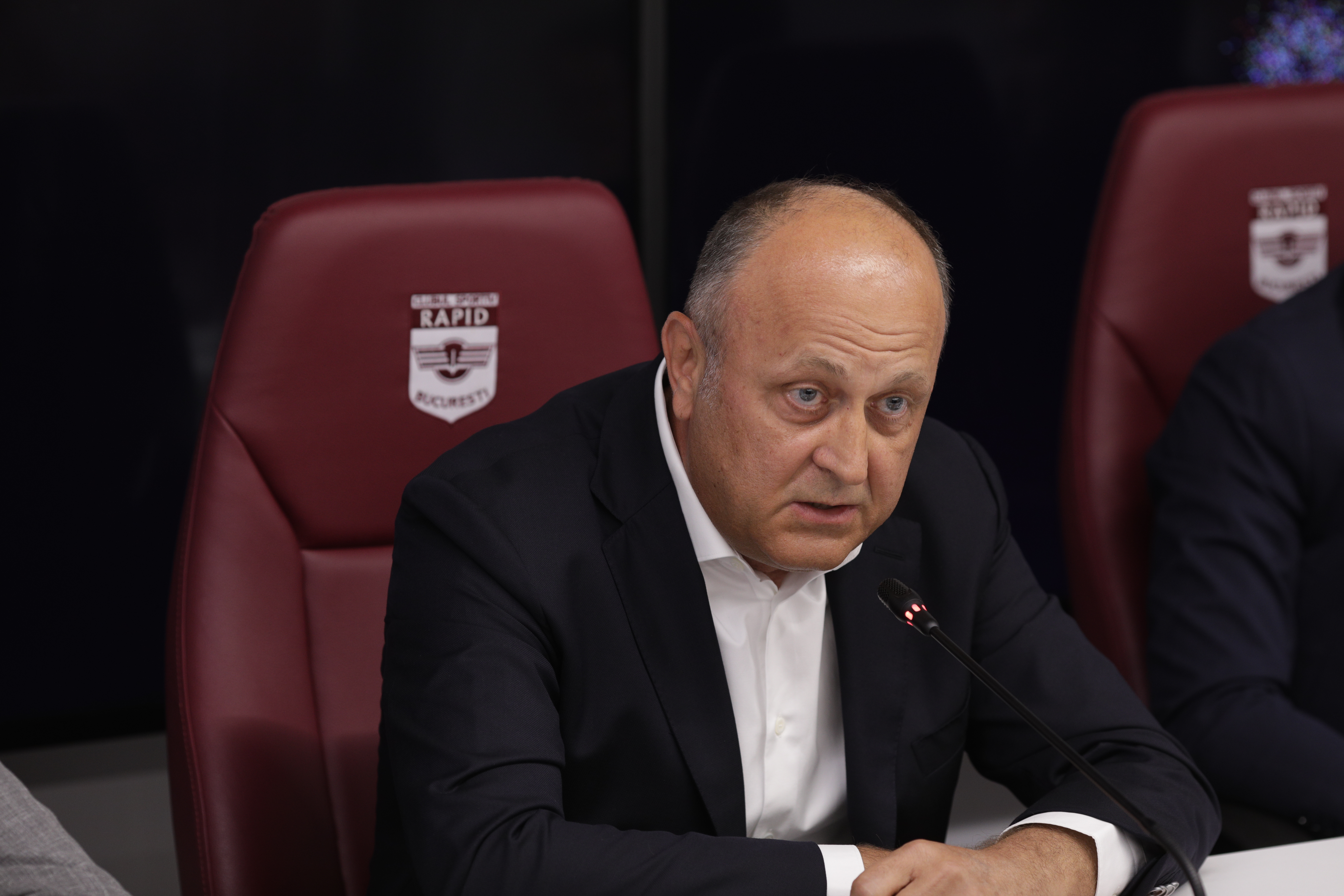
The collective prejudice says that football does not know how to manage itself. But there are exceptions. Noticeable.
Two of the clubs that have applied for a European license have already published their financial statements as required by the Romanian Football Federation. It is about the Lighthouse and the Threshold. The balance sheet for 2023 shows a big difference between the two owners and, at the same time, managers who run the respective companies: Gică Hagi and Dan Șucu.
Hagi made a significant profit compared to what usually happens to clubs in Romania, while Shucu recorded a huge loss. Of course, Hagi takes care of a stable club, while Shuku has just started investing and the speedster is trying to adjust year after year. But the data is interesting. They do not support the idea that, in general, football is, to paraphrase a well-known saying, “a gentleman’s sport run by idiots.”
Rapid has a loss of 3.8 million euros
Hagi and Farul ended last year with an increase of €1.5 million. In 2023, the seaside band managed to become the champion. Instead, “Rapid”, which did not even get into the European Cup. 2023 was the first full year with the patron Țucu in Julesti. Rapid’s deficit is EUR 3.8 million. This is an even bigger loss than the year before Shuk’s arrival, 2021, when Rapid played in the Second League for six months. Of course, costs in Ligue 1 are much higher and often revenues do not follow costs.

Dan Suku. PHOTO: Inquam Photos / Octav Ganea
For 7 years, the lighthouse has been making a steady profit
The financial result in 2023 is in line with the economic temperament of the two clubs over a longer period. Farul has made a profit every time in 7 years, and Rapid has only made a loss in the last 4 years:
The financial balance of the Gike Hagi club for the past 7 years
YEAR-PROFIT-LOSS
2017 – 3,000,000
2018 – 450 thousand
2019 – 1,800,000
2020 – 100 thousand
2021 – 350 thousand
2022 – 850 thousand
2023 – 1,500,000
Financial balance of Rapid for the last 4 years
YEAR-PROFITS-LOSSES-CLUB SITUATION
2020-1,400,000 – the team played only in the second league
2021-2,800,000 – Promote to Ligue 1 in the summer
2022-1 400 000 – Şucu becomes a shareholder in the summer
2023-3,800,000 – the first full year with Shuku as the majority shareholder
I pay a salary of 600,000 euros per month
According to the salary budget for 2023, the two clubs were almost at the same level. Rapid spent a little more, but less than 5% more.
In absolute terms, the salaries of Giulesti residents amounted to 7,000,000 euros, while Hagi spent about 6,700,000 euros on employees. This is gross, not net. At the expense of the club.
In the case of both sports entities, there was a significant increase in the salary budget compared to 2022: Hagi had a surplus of almost 32%, Șucu increased the level by 35%.
So, the difference is not in the expenses, which make up the bulk of the expenses, but in the income.
There are three main sources of income for the club run by Hagi:
1. Sponsorship and advertising
Hagi achieved unprecedented revenues. In 2023, it reached €5.7 million, which is a whopping level for what Romanian clubs usually generate. In this chapter, Hagi attracted 70% more than Tsuku in Rapid. The inhabitants of Giulesti produced 3,350,000 euros.
2. UEFA revenues
Despite failing to qualify for the group stages of the European tournament, Farul scored 4 doubles on the continent last summer and reached the Conference League play-offs. An amount exceeding 1.5 million euros was chosen. Rapid had zero income from UEFA.
3. Sale of players
In 2023, Hagi also showed good results. He reported revenues of more than two million euros, while Shuku received somewhere around half.
Rapid collects 2.3 million euros from tickets
A significant parameter in which the Rapid surpassed Farul was the money earned from the tickets for the match. The Shuku club took advantage of the fact that they played match after match behind closed doors at Giulesti, a stadium with almost three times the capacity of the Hagi at its base in Ovidio.
Rapid collected 2.3 million euros, Farul only about 600 thousand euros.
Sepsi “bypassed” both of them with state funds: 4.3 million euros per year
Since the two clubs are exclusively private, there was zero connection to the public money network.
Something strongly contrasts with what appears in the accounting records of Sepsi Sf.Georghe, a club that is heavily supported by the local authorities, but even by the Budapest government.
In 2023, in the section “Subsidies, donations and other income of state/local authorities”, the amount received by the club under the leadership of László Diosegy was almost 4.3 million euros. Twice as much as Rapidul takes from tickets!
In total, for the previous two years, this public source of Sepsi’s income exceeded 10 million euros. And Sepsi ended last year with a profit of almost half a million euros, after a profit of 1.4 million in 2022.
Source: Hot News
Ashley Bailey is a talented author and journalist known for her writing on trending topics. Currently working at 247 news reel, she brings readers fresh perspectives on current issues. With her well-researched and thought-provoking articles, she captures the zeitgeist and stays ahead of the latest trends. Ashley’s writing is a must-read for anyone interested in staying up-to-date with the latest developments.